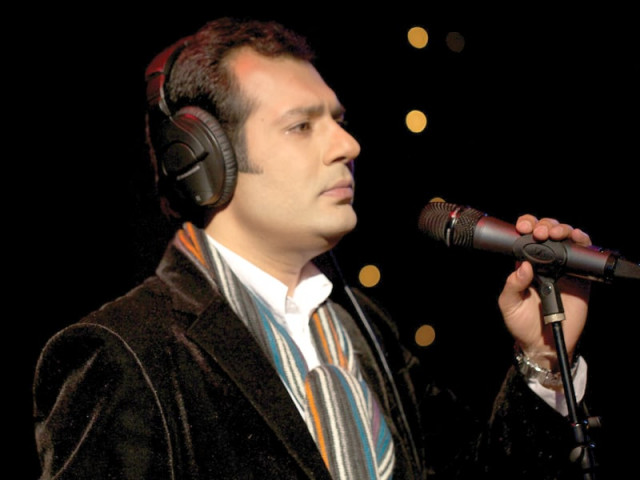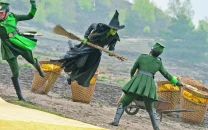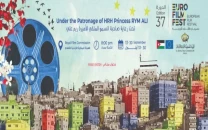Unlike Pakistan, Afghanistan supports artists: Hamayoon Khan
Musician Hamayoon Khan discusses the state of the Pashto music industry.

He was invited as a state guest by Afghan President Hamid Karzai, given the best singer award in Pakistan and Afghanistan and recently won everyone’s hearts with his rendition of “Larsha Pekhawar Ta” in “Coke Studio”. Earlier, musician Hamayoon Khan worked with the corporate sector and even tried his skills as a programmer for channel ATV Khyber, but eventually gave in to his dream of writing, singing and producing music and turned towards the music industry. The Pashto musician talks to The Express Tribune and discusses the developments his recent venture has brought for him.
The ‘Coke Studio’ experience
Khan, who is extremely happy with the exposure he got through the refurbished version of an old, Pashto folk tune says, “This is the 2012 version of this folk melody.” He adds, “Whenever I listen to this version, I imagine Pakhtuns dressed up like cowboys and roaming around Peshawar.”
When asked what he thinks of the conservative lot who believe that “Coke Studio” tarnished the essence of the folk tune, the musician says, “I know people tend to take traditional folk melodies quite personally at times. What they need to understand is that it is a ‘Coke Studio’ version of the song and they should expect it to be different from the original.”
Discovering the roots of “Larsha Pekhawar Ta”
“Larsha Pekhawar Ta” is the one of the oldest folk tunes that according to Khan, dates back to hundreds of years in Pashto history. “No one knows about the exact time of its origin and the composer of this folk melody as this tune was passed from one generation to another without any background or history. And although the words did change with time, its message still revolves around love,” says Khan.
The musician says that the exact geographical location of its origin is also unknown and one can only assume things by what is available in the lyrics. “The song mentions Peshawar, which was known as Kanishka Pura in ancient times from which we can conclude that the original folk tune is not that ancient. As far as the region is concerned, along with Peshawar it also makes references to Nangarhar, which is a province in Afghanistan, with Jalalabad as its capital so it could have been written on either side of the Durand Line,” speculates Khan.
Like Khan, many artists have composed their own version of the song by modifying the lyrical content according to their preferences. “This is a song based on Tappas, which are a traditional lyric-writing format. We have myriad music books that contain thousands of Tappas from which any artist can pick and choose his or her favourite and use them in their renditions.
Competition from across the border
Like many other musicians hailing from that region, Khan too believes that the Afghan music scene is way ahead of what is happening in Pakistani Pashto music. He salutes Afghan artists and authorities for their effort and says, “Afghan musicians were better than us and they are better than us because of the kind of support they get from their authorities,” says Khan. “They have the Tajik, Uzbek and Russian influences in their music and their artists keep evolving with time.”
Khan, however, complains that the state of the music industry is not as good in Peshawar. “Their government, unlike ours, actually believes that artists are contributors to the society hence they provide them with all the sponsorship, funding and production facilities that are required. We, on the other hand, don’t get any help as such from the government,” states Khan.
While recalling his experience of performing in Afghanistan, the musician says, “It is altogether a new experience whenever I’m performing in Afghanistan. You can see how much their audience has matured with time.” However, on a positive note he adds that Pashto musicians in Pakistan have also matured and they will soon be ready to compete or may be even surpass Afghani artists.
What the future holds
The “Coke Studio” session gave Khan an opportunity to cater to large audience and the musician plans to release his album soon which will comprise of tracks in Pashto, Urdu, English, Punjabi and Persian.
Published in The Express Tribune, May 23rd, 2012.



















COMMENTS
Comments are moderated and generally will be posted if they are on-topic and not abusive.
For more information, please see our Comments FAQ